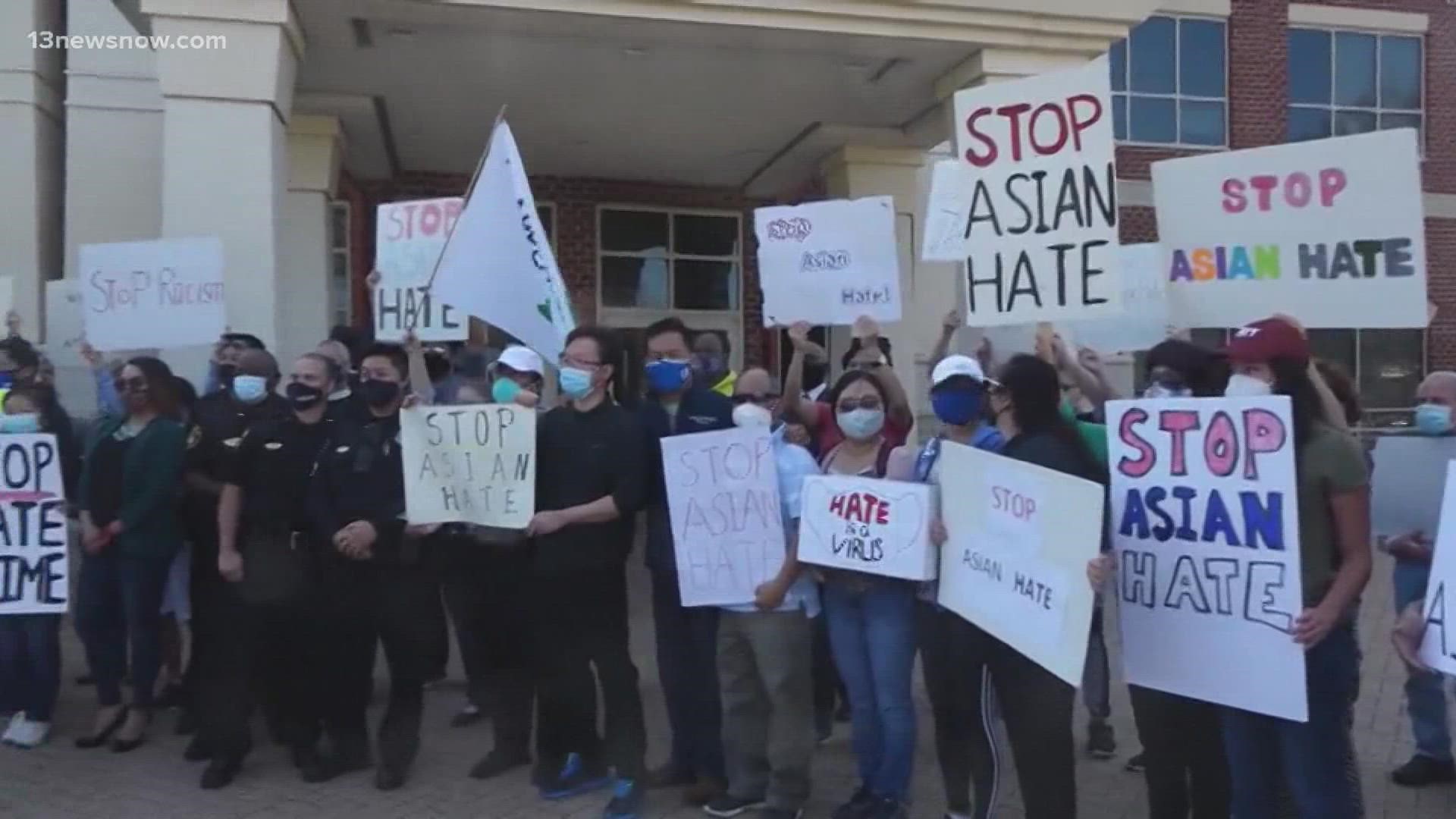VIRGINIA BEACH, Va. — It’s something a lot of people in the U.S. can relate to: feeling targeted or bullied because of your faith, skin color, or sexual orientation.
"We’ve seen all too often how individuals filled with hate have unleashed horrific violence on our communities," said Raj Parekh with the U.S. Attorney's Office for the Eastern District of Virginia.
We’ve seen it in Georgia with Ahmaud Arbery, in Buffalo at Tops Friendly Market, and just last week at Club Q in Colorado Springs.
Wednesday night in Virginia Beach, The Tidewater Jewish Foundation hosted close to 50 people to discuss how to prevent hate crimes and the importance of reporting them to law enforcement.
"It’s the worst kind of situation to have -- just to be targeted because of who you are, what your skin color is," said Parekh.
U.S. Attorney for the Eastern District of Virginia Jessica Aber said a hate crime is defined as a crime like murder, assault, or a threat on the internet, that is motivated by hate.
"That hate doesn't have to be hate towards all people in that class of people. It has to be hate towards that particular person because of that characteristic they have, their race, their gender, their ethnicity, their sexual orientation," said Aber.
That can sometimes be difficult to prove and prosecute.
"The department does it every day. When we see the evidence and it’s something that we can prove beyond a reasonable doubt, we have no problem charging and prosecuting hate crimes," Aber said. "Sometimes it can be difficult to meet the elements of the law and fundamentally, that's our job."
While Ted Roese from the FBI said there is a general consensus hate crimes are going up in the U.S., the data is not always straightforward because of a lack of reporting.
The latest data from the Department of Justice shows there were 85 reports of hate crimes in Virginia in 2018, 102 in 2019, and 123 in 2020.
DOJ data also shows 61% of hate crimes reported in 2020 were because of a bias against the victim’s race, ethnicity or ancestry, 20% for sexual orientation and 13% for religion.
The panel of attorneys, Norfolk police and FBI all agreed it’s not up to you to figure out if you fit into those statistics.
"It’s not necessarily the individual that needs to figure out whether they’ve been a victim of a hate crime. It’s our job to investigate that crime," said Nick Marcus with the Norfolk Police Department.
That’s why all the panelists urge people to call 911 if they think they’ve been a victim of, or have or seen a hate crime.

